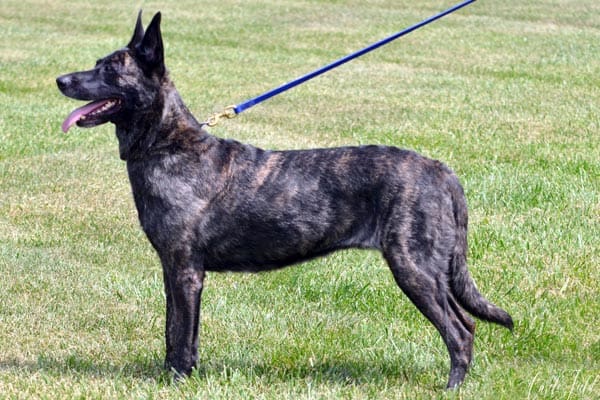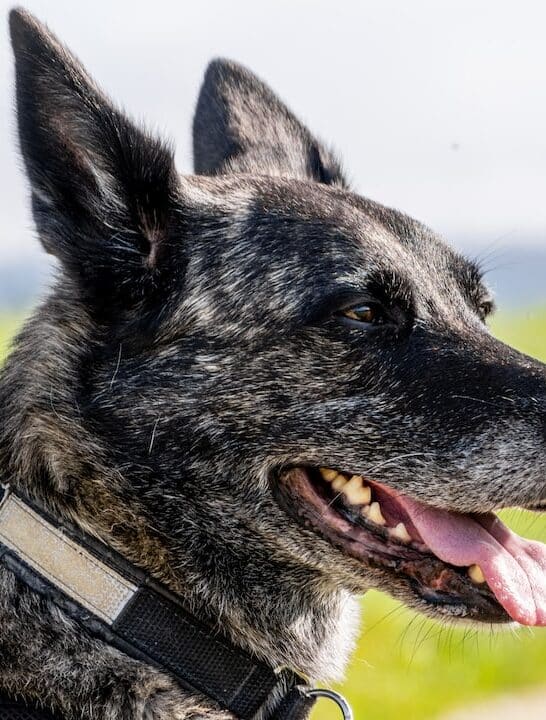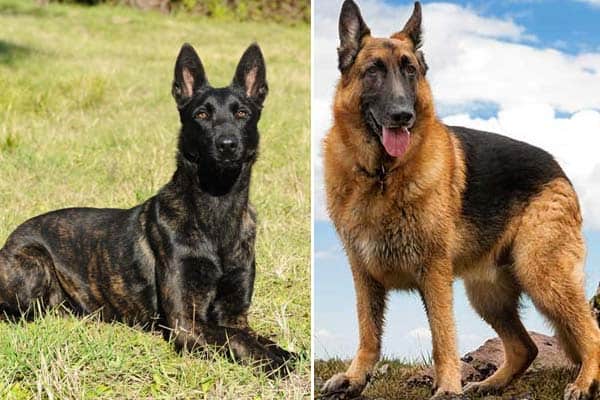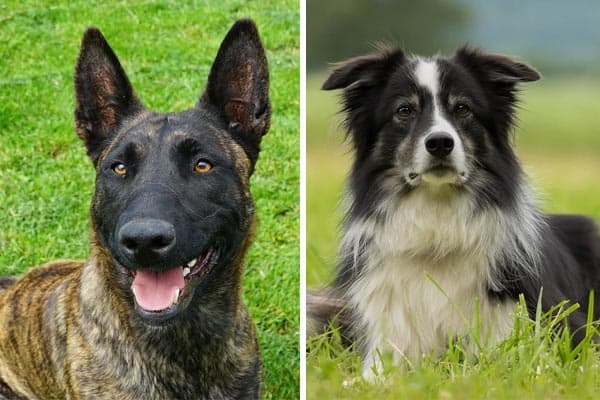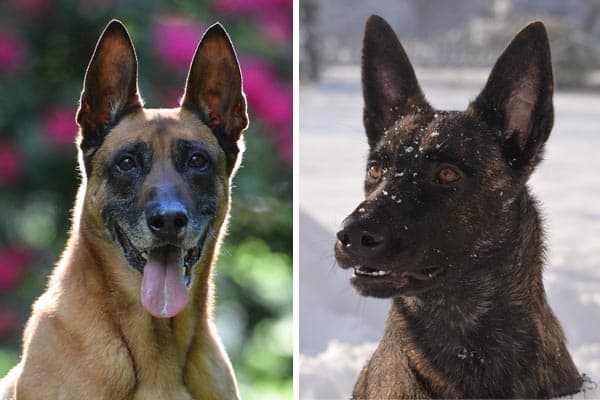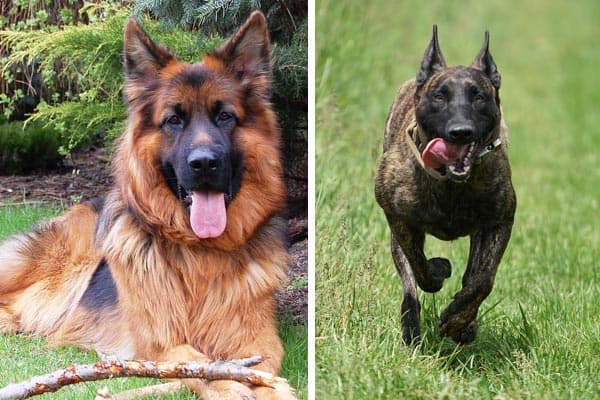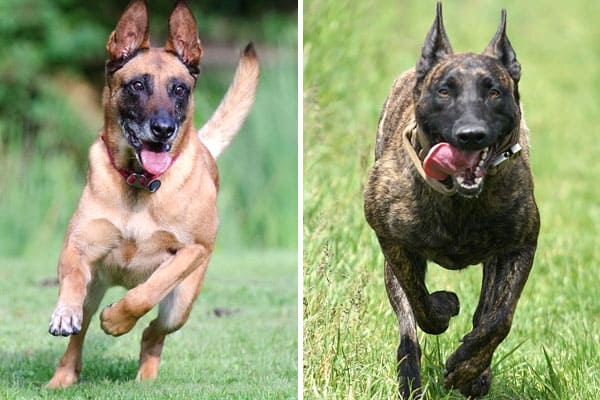Is the Dutch Shepherd a Good Guard Dog? The Herd Dog Turned Guard Dog Extraordinaire
If you haven’t heard of a Dutch Shepherd until now, you are about to meet an extraordinary dog breed.
These dogs can make the swiftest human sprinters look like they are standing still.
Described by the American Kennel Club (AKC) as “lively, intelligent and athletic,” this description doesn’t begin to do this dog breed justice.
Dutch Shepherds are, however, not for the novice canine handler or trainer. This dog needs a lot more than a place on the couch to stay healthy, happy, and out of trouble.
When taking on a working dog breed like a Dutch Shepherd, you really need to understand everything you can about how this breed’s past.
Knowing how it evolved can help you decide if you have the time and energy to properly care for such a dog.
In this article, we go in depth into the Dutch Shepherd’s breed history and background. This will help explain why these dogs are unstoppable guard dogs, and what kind of training is required to develop the required skills.
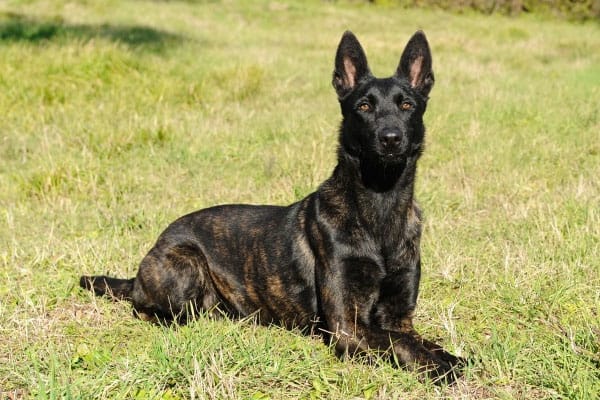
Does the Dutch Shepherd Make a Good Guard Dog? Meet This Naturally Occurring Breed
The Dutch Shepherd stands out as a modern canine breed with no known start or development.
The Dutch Shepherd is what is called a “natural” or “naturally occurring” dog breed. What does this mean, exactly?
It means this dog evolved naturally alongside humans without any conscious or deliberate interference from human breeders.
The Dutch Shepherd’s breed background, as the breed name suggests, is in herding.
These are farm and livestock dogs that make great guard dogs, herding dogs, and protection dogs for livestock animals and people.
Today, the Dutch Shepherd as a breed continues to fly under the radar, with its wild ancestry and modern wolf-like appearance. But in the right situation, there is no other dog like the Dutch Shepherd.
Is the Dutch Shepherd a Good Guard Dog? This Video Proves It
Watching this short video will prove just how incredible the Dutch Shepherd can be as a guard dog.
The video shows a Dutch Shepherd performing canine athletics, showing off this breed’s racing, running, jumping, hurdling, herding, protection, and agility talents.
But what the video doesn’t show is the ‘behind the scenes’ training and practice that it takes to properly funnel all that raw ability into a useful talent.
In the video, you can see the Dutch Shepherd working alongside professional dog trainers and K-9 instructors. They’re equipped with all the right training and protection gear they need to stay safe during training exercises.
Now try to imagine a Dutch Shepherd being happy with a couple of walks around the block each day, and a few minutes of tug-of-war in the backyard.
This is a dog that was literally born to work – and work hard and tirelessly – all day, every day.
Not surprisingly, Dutch Shepherds are often given up by owners who simply did not realize the scope of work they were taking on by choosing this dog breed.
The North American Dutch Shepherd Rescue (NADSR) is an organization that operates under the umbrella of the Dutch Shepherd Dog Club of America.
If you are interested in opening your home to an abandoned Dutch Shepherd dog who needs a new forever family, the NADSR is definitely the place to contact.
The History of the Dutch Shepherd Dog Breed
As this breed’s name suggests, the Dutch Shepherd originates from The Netherlands, where these dogs have worked alongside farmers and shepherds for generations.
Interestingly, Dutch Shepherds have often played a dual role in farming life.
In addition to their responsibility of guarding their people and the farm’s livestock from predators, Dutch Shepherds traditionally have helped to maintain order inside the farm as well.
Examples include making sure the chickens stay out of the garden, and ensuring the cows show up for milking on time every day.
However, technology has steadily replaced animal labor on the farm.
This has resulted in Dutch Shepherds becoming top picks for K-9 work, military, and police work, search and rescue, service and guide dog work, and canine athletics.
Size, Height and Weight of the Dutch Shepherd Dog
The Dutch Shepherd traditionally is a lean and wiry dog, with long legs and a trim body.
This dog’s adult weight can range from 42 to 75 pounds, and adult dogs typically stand 21.5 to 24.5 inches (paw pads to shoulders).
Shedding, Grooming, and Coat Care for the Dutch Shepherd Dog
The Dutch Shepherd’s coat is always a brindle pattern with a gold or silver hue.
This dog can have three different coat types: short hair, long hair, or rough hair.
Each of the three coat types requires a different kind of care and grooming.
Short hair coats only need a monthly brushing and occasional bath. Long hair coats need weekly brushing and grooming (some owners use professional grooming to keep the coats looking neat).
Rough coats need monthly brushing and occasional hand-stripping.
Dutch Shepherds have a double coat and twice per year will “blow coat”. This means that the coat sheds out profusely with the changing of the seasons.
The topcoat layer is coarser and water-resistant, while the inner coat layer is soft and thickly insulating.
These dogs will shed lightly year-round as the coat replenishes itself.
You will definitely want to keep a dustpan and broom, vacuum cleaner, and de-lint brush handy.
Exercise and Training of the Dutch Shepherd Dog
When it comes to meeting the exercise and training needs of a Dutch Shepherd, many aspiring owners soon realize they may have taken on too much dog for what their lifestyle really allows.
Dutch Shepherds need a tremendous amount of daily exercise and activity to adjust well to life as companion canines.
It is important to understand these dogs were not bred to be “pet dogs.” They evolved naturally to work hard alongside their people.
A bored Dutch Shepherd will quickly become destructive and difficult. Canine athletics can provide a great outlet for the Dutch Shepherd’s natural work ethic and high energy level.
Dutch Shepherds are not generally considered suitable for first-time dog owners because they can be stubborn and willful. In their natural work role, Dutch Shepherds operate quite independently.
During training, they may exhibit the same independent spirit that has made them so indispensable for herding and farming for generations.
Only positive reinforcement and training methods will work for these highly intelligent and resourceful dogs.
Great Jobs the Dutch Shepherd Dog Can Excel In
The Dutch Shepherd, with its inexhaustible energy level and impeccable work ethic, is a working dog in a class of its own.
With the right training from an experienced handler, the Dutch Shepherd makes an excellent working dog for each of the following roles:
- Guide dog for the blind.
- Service and therapy dog.
- Military or police dog.
- IPO (personal protection K-9).
- Competitive canine athlete.
- Search and rescue dog.
- Scent detection and tracking dog.
- Obedience, agility, and show dog.
But even if you don’t need a Dutch Shepherd for a specific job, they can still become fantastic companion canines.
As long as you can provide them with the athletic outlet they need on a daily basis, such as long runs or hikes, these shepherds can be great family pets.
Health and Longevity of the Dutch Shepherd Dog
Overall, the Dutch Shepherd is considered a medium-sized dog breed. As with many medium-size breeds, this dog has an average life expectancy of 11 to 14 years.
According to the Canine Health Information Center (CHIC) database, a repository of voluntarily submitted breeder health information, the Dutch Shepherd has the following known heritable (genetic) health issues.
- Hip dysplasia.
- Elbow and shoulder dysplasia.
- Luxating patella.
- Cardiac and eye issues.
- Thyroid issues.
- von Willebrand disease.
- Myositis.
- Multiple drug resistance.
- Degenerative myelopathy.
- Dental issues.
When you are searching for a Dutch Shepherd puppy, it is important to only work with a responsible breeder that performs all available health pre-testing on parent dogs.
Careful pre-testing can prevent expensive and life-limiting health issues from being passed on to puppies.
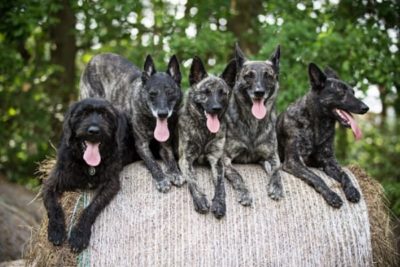
Is a Dutch Shepherd Your Next Guard Dog & Companion Canine?
In this article, you have learned about the Dutch Shepherd dog’s unique breed history, and role as a tireless and dedicated working dog.
Could the Dutch Shepherd be the right companion canine for you? Let us know your thoughts in the comments!
























